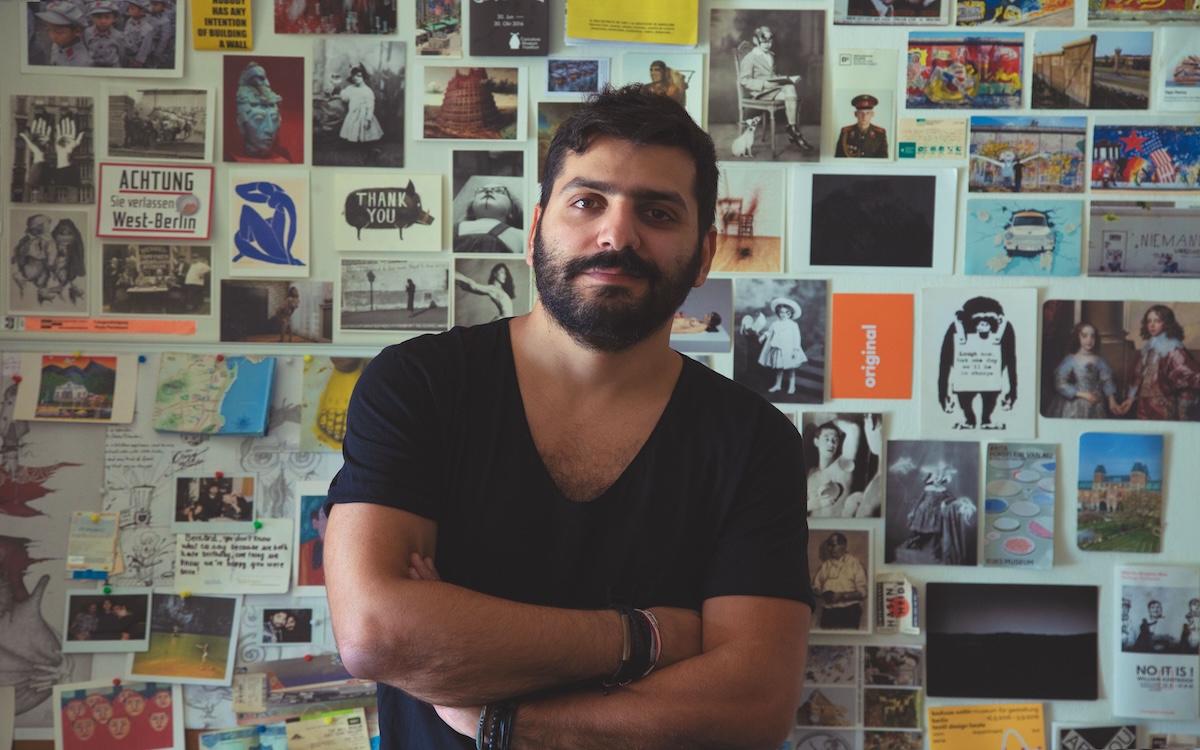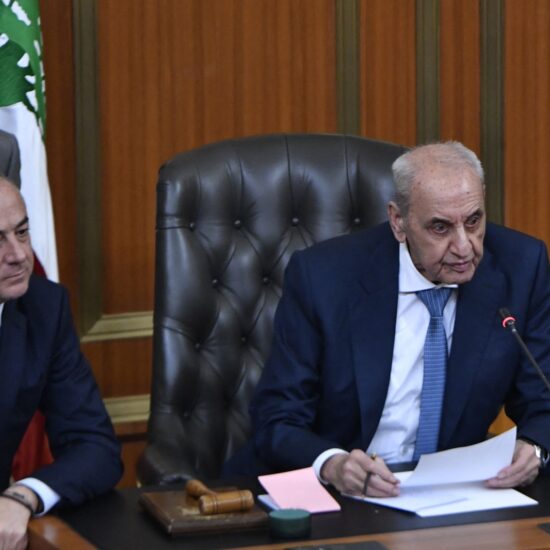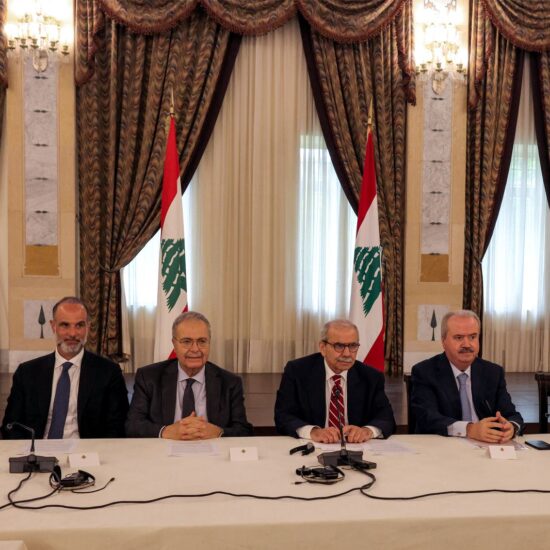
Since 2018, Lebanese cartoonist Bernard Hage’s skits and sketches have been tickling viewers with their incisive satire and relatable humor. Originating from little more than random jokes about daily life posted to his personal Instagram page, what started out as just a form of entertainment – mostly just for his own enjoyment – has since soared in popularity, much to the artist’s surprise.
“After some of the drawings went viral, I got contacted by L’Orient-Le Jour,” Hage told NOW. “[They] proposed that I start publishing the same illustrations, but with them, and taking a more political approach, if I felt comfortable with that. That’s how I shifted from just making random jokes about Lebanese society to a more political approach.”
“I’ve always drawn as a hobby, since I was five,” he added. “I studied graphic design at university. I worked in advertising after I graduated for a few years, but quit my job after that to devote more time to my art.”
Hage’s signature style, published under the title “The Art of Boo”, is simple and direct, focusing primarily on a cleverly chosen caption rather than on his art, which is kept deliberately basic. Although clearly inspired by Lebanon’s political and societal trevails, Hage has deliberately avoided the specific and overt callouts and caricatures that many other satirical illustrators often rely upon, preferring to use broad characters and insinuation.
View this post on Instagram
Lebanon’s political elite are rarely tolerant of direct attacks, even in the form of humorous ridicule. However, humor is also a deeply rooted part of Lebanon’s social fabric, especially in recent years. Making fun of a bad situation is a well-established national pastime. When everyone is already in on the joke, Hage finds little need to spell out exactly who he has in the crosshairs week-to-week.
“The context of a cartoon is very important,” he explained. “When I publish it, people know immediately who I [am talking about]. [At the same time], I know very well that Lebanon is barely a democracy,” he continued. “I know the methods that the state uses to threaten any voice that may make jokes about them, or write bad things about them, and this is a battle I would like to avoid wasting my time with, so I found a solution by creating symbols instead of naming names.”
“It’s also more practical,” he joked. “Especially during the three intense years of the uprising between 2019 and 2021, when I was producing lots of work for the newspaper, it was helpful to follow this very childish sort of minimalistic drawing; the focus was on the joke itself.”
By constructing simple visual shorthand for his subjects, Hage has infused his comedy with a visual language that is immediately familiar and relatable, not just within Lebanon but also around the world.
“Having a minimalistic drawing style is like [making] road signs; people everywhere, even those who do not drive, will be capable of reading them,” said Hage. “Following a minimalistic approach that relies on symbols – more than details, characters or portraits – makes it more international; people adapt these minimalistic figures to their own cultures.”
“I’ve been receiving lots of comments that this is the same as in other countries, mostly from places like Venezuela, Greece or Argentina,” he added. “[These are all] countries that are also suffering from the same things I focus on, the most harmful of which is the corruption of the state.”
While Lebanon’s fractious and fraught political situation certainly provides ample material to turn into jokes, attempting to keep everything lighthearted can often be challenging. For Hage, behind the mockery lies a very real anxiety about where Lebanon is going, and what can be done – if anything – to place the country on the path to recovery.
View this post on Instagram
As the situation in Lebanon continues to deteriorate further and further, it can feel like the joke has gone on long past the point of it being funny, especially when so many of those responsible for the dysfunction of the country – from political figures and organizations to national leaders – have largely remained the same since the Lebanese Civil War.
“If you had asked me two years ago, I would have told you that we are at a place where all we can do is laugh,” said Hage. “Laughter is a form of resistance in a way, but now – from my current perspective – I find that it’s like a double-edged sword. People are enjoying [making fun of] the daily politics because that is what they can do [and] they cannot do anything more, but – at the same time – they are not doing anything else except just laughing, and this is what’s prolonging the status quo of this crisis.”
“[We] face lots of political apathy in Lebanon today,” he admitted. “People are tired of the current situation. Nobody wants to talk about it – it’s depressing – but we need to [look at] our economics and our political policies, to see what led us here. We need to understand that part of our history, in order to be able to get the full picture of where we are today, why we are here, and why we seem incapable of moving forward.”
Despite his own frustration with his home country’s troubles, Hage considers himself blessed. This week marks a new exhibition of his work at Beirut’s Dar El-Nimer Art Foundation, the second such show in a career that is realistically still in its early stages.
“For me personally, I differentiate between an artist and a technician,” said Hage. “A technician is someone who can draw, and who has a great technique and he’s great at what he does, but an artist is someone with a message who makes changes in society. There’s always a way to do it, no matter who they are or what sort of system they are living under.”
“I feel grateful – and honored, and humbled at the same time – for the warmth that people have shown my work throughout these last few years,” he concluded. “It’s a short period of time for someone to become this established. I would always encourage people to go after what they want, especially if what they want is to raise awareness or to play the role of an activist in society. [People] will always find ways around the hurdles or threats that artists might face.”
In a way, Bernard Hage’s simple cartoons – lauded as they are by both fans and critics – highlight a simple truth about Lebanon and its people; real change can only come from looking within. While it may be comforting to stand back and laugh at the unfolding chaos, actions that challenge the status quo are more valuable than opting out completely.
Robert McKelvey is a multimedia journalist with @NOW_leb. He tweets @RCMcKelvey.







